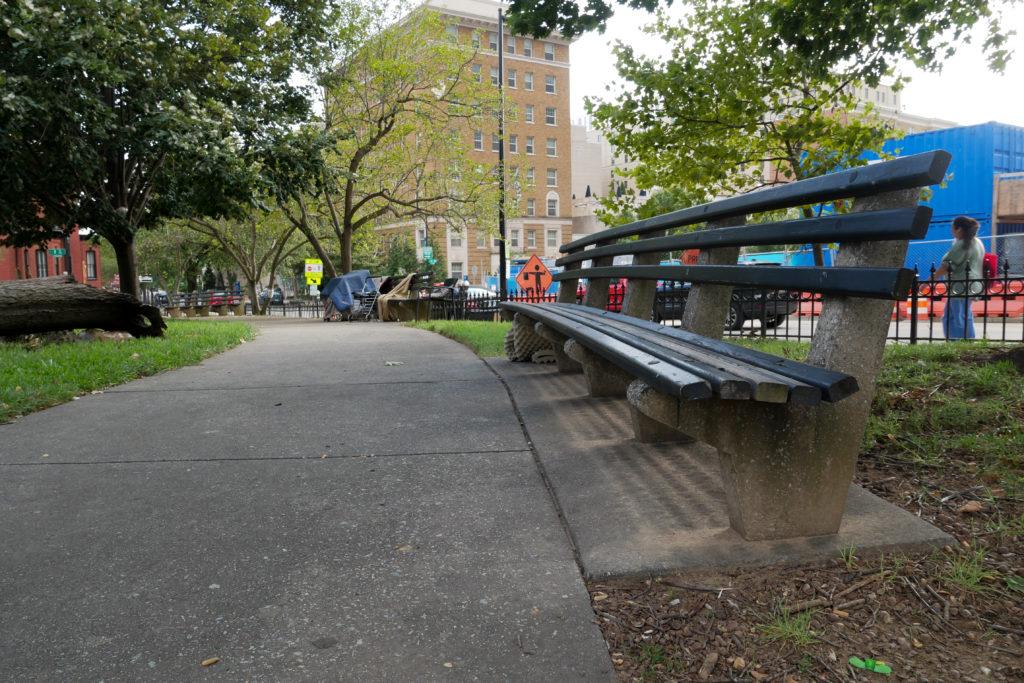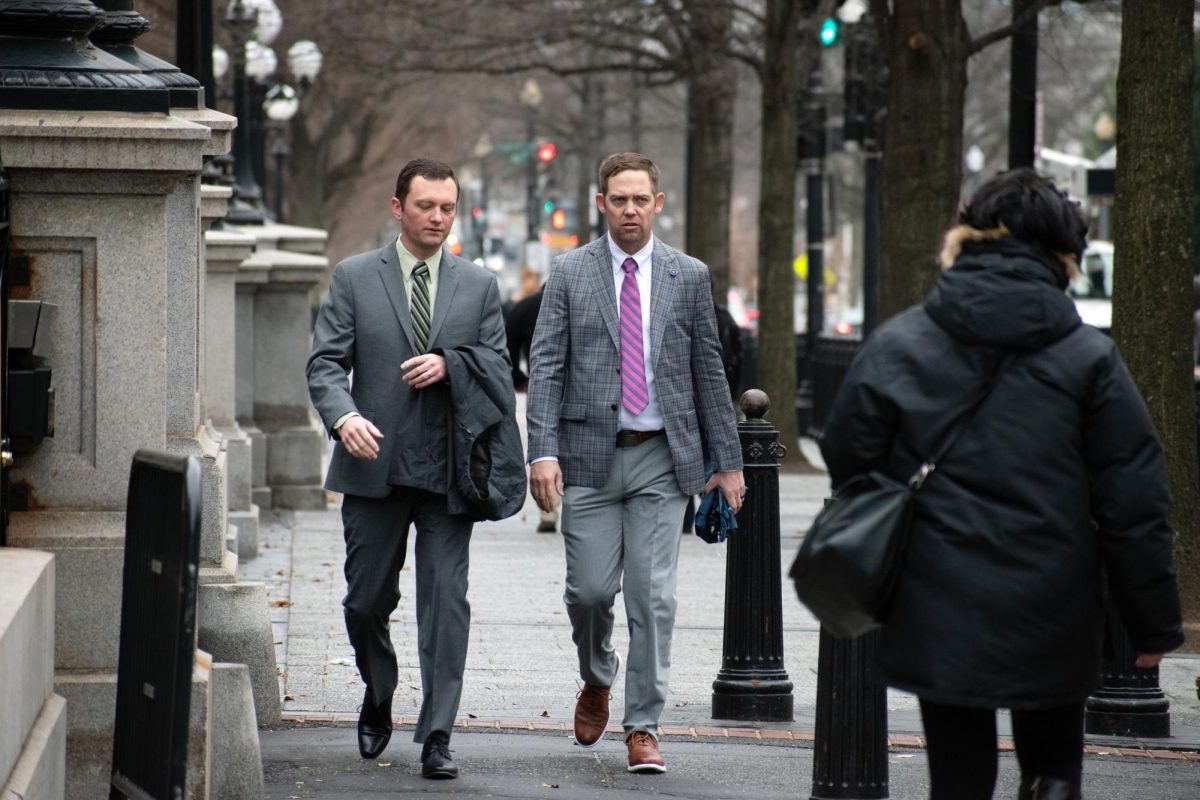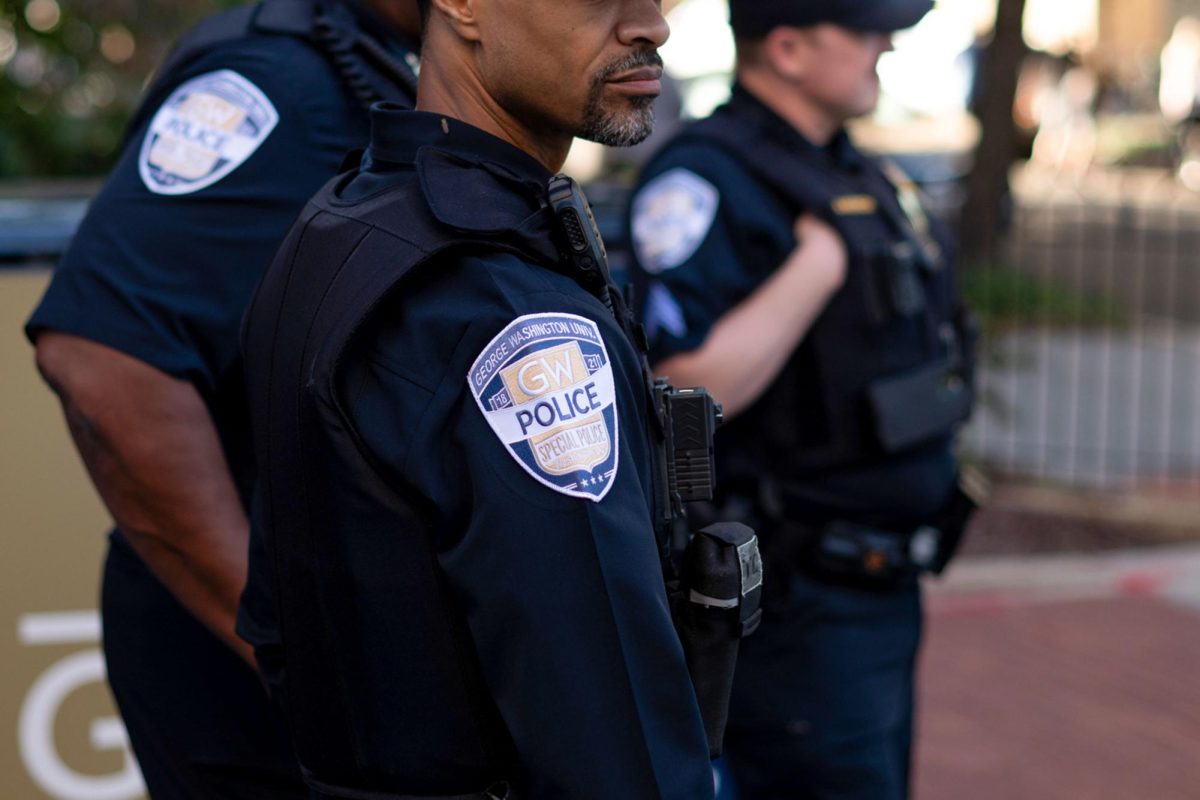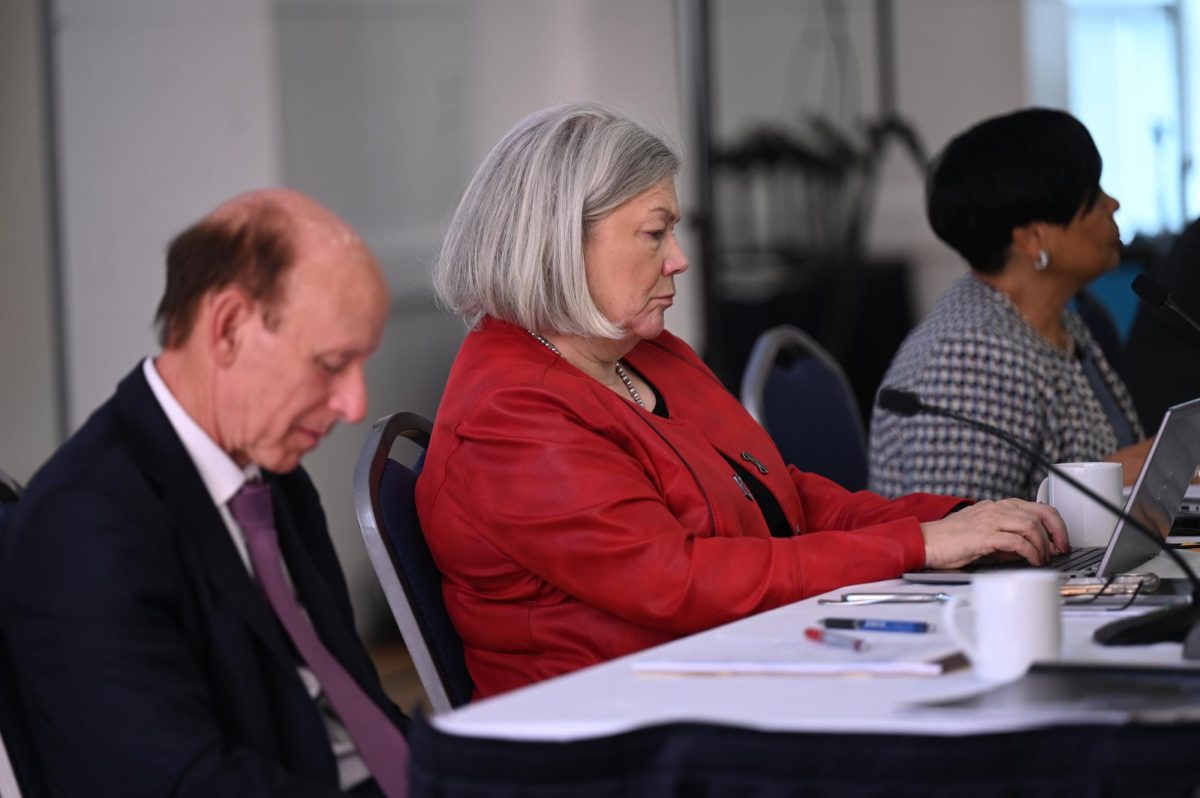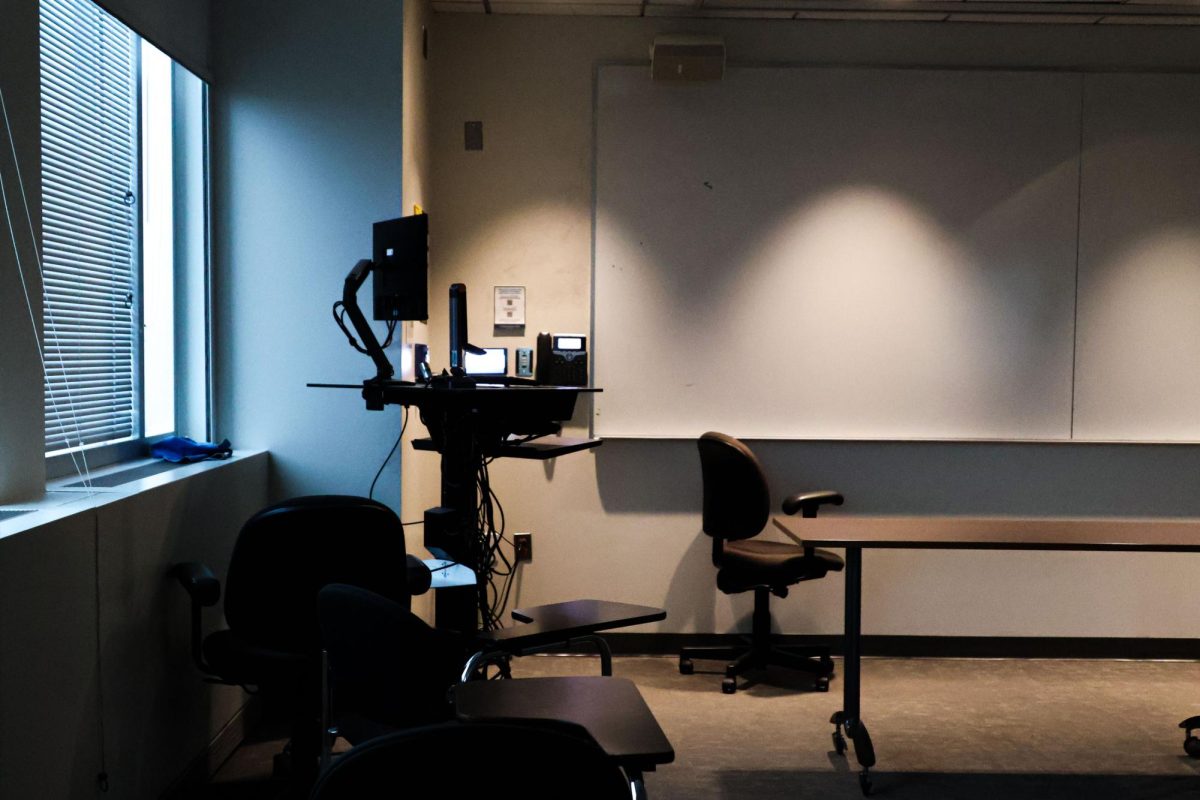A park near campus is undergoing renovation this fall as part of a neighborhood improvement deal between the University, a real estate company and the Foggy Bottom community.
Catherine Dewey, the National Park Service’s chief of resource management at the National Mall and Memorial Parks, said the construction site at Reservation 28 – which sits along Pennsylvania Avenue across from the Shops at 2000 Penn – was assembled Aug. 24. She said NPS approved designs to plant new trees and flower beds and replace surrounding sidewalks following a yearslong planning process with the real estate company Boston Properties.
“It’s a really great partnership with our neighbors, and we’re really happy to see that the park is able to have some improvements made that we wouldn’t typically have the ability to make,” Dewey said.
Dewey said the designs include plans to replace trees that have been damaged in previous years because of age or disease, plant flower beds along the Pennsylvania Avenue side of the park and renovate surrounding sidewalks with “aggregate concrete” used in other D.C. parks. She said NPS could also install new benches accessible under the Americans with Disabilities Act, but those plans are still “in flux” since production has yet to start.
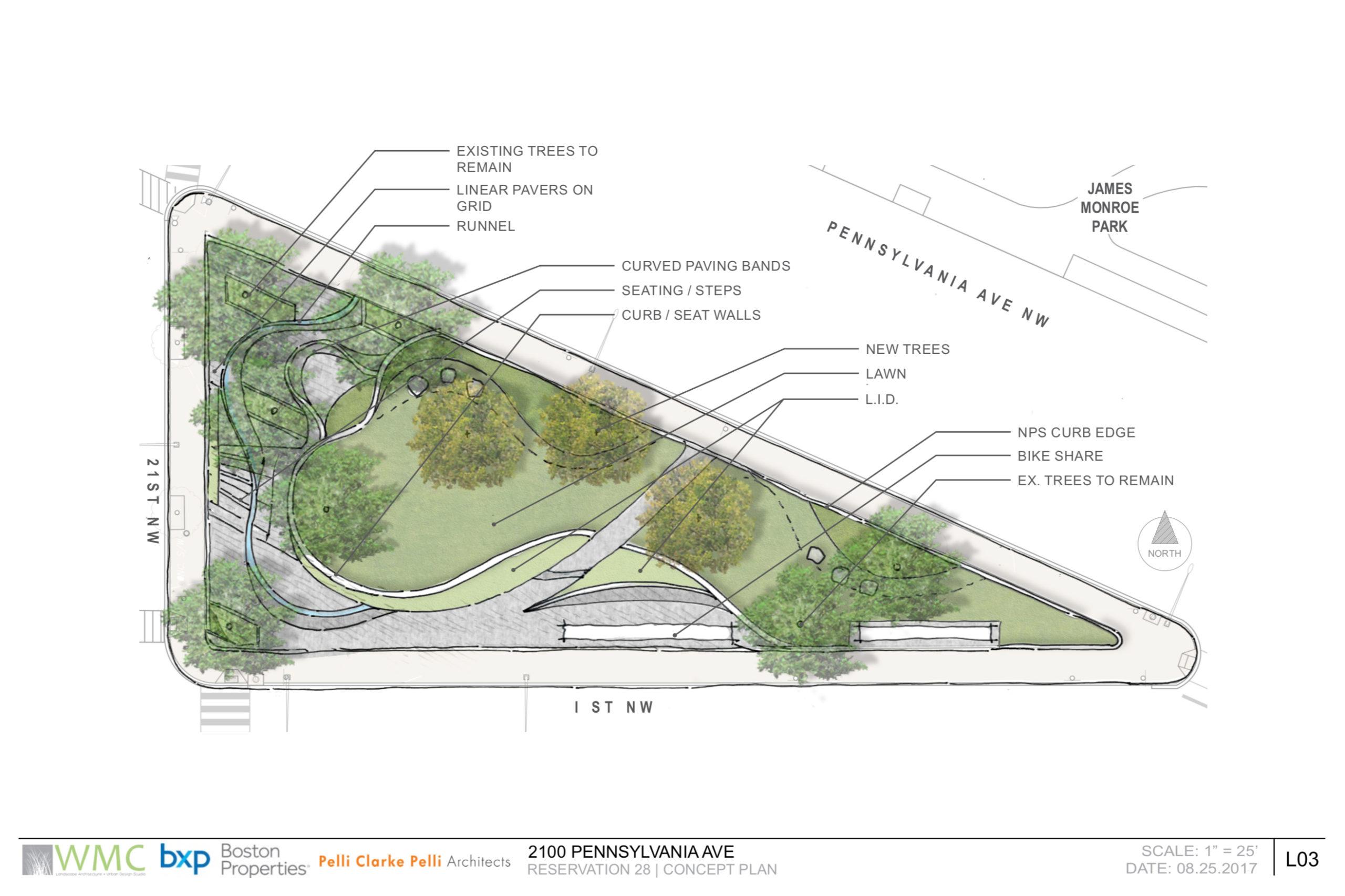
Courtesy of Pelli Clark Pelli Architects
Designs for the park show that existing trees and a bikeshare station will remain in the space.
NPS scrapped plans to install new ramps that would allow individuals with physical disabilities to access the space because officials would have to seek approval from the National Capital Planning Commission and the Commission on Fine Arts – federal offices that oversee urban planning and design, Dewey said.
“It was decided that there’s enough accessibility in the park that those were not required, and had we put those in, it would have required a number of different approvals,” she said.
Dewey was unable to comment on the number of trees or flower beds that will be planted.
She said the construction site shouldn’t impact much of the area surrounding the reservation, as renovations will be limited to the confines of the park.
“The park may be closed to folks from walking through, like when they pour the concrete, but overall it’s supposed to be a pretty simple project, which is planting some trees and fixing the sidewalks,” she said.
The $700,000 neighborhood deal that includes the renovation at Reservation 28 served as part of the University’s partnership with Boston Properties to redevelop 2100 Penn and Rice Hall. Officials signed a 75-year lease to the real estate company last summer, and the northeast side of campus has since devolved into a construction site over the past year.
Boston Properties requested NPS approval to renovate Reservation 28 as one of three neighborhood improvement projects the company must complete before occupying newly constructed office space at 2100 Pennsylvania Ave., according to a deal the University reached with the company in 2017.
Sean Sullivan, the vice president for development at Boston Properties, said his company has planned the park’s design with the National Park Service for the past three years and has contracted engineering, landscaping and architectural support to facilitate the renovation’s completion later this fall. He said the park should serve as a meeting place for the community following its improvements.
“Whereas now it’s perhaps more of a transient cut-through for people, hopefully, it’s more of a gathering place,” Sullivan said.
He said those involved in the renovations hope to be finished by the end of October. After finishing work at Reservation 28, Sullivan said the company plans to complete renovations at Rose Park and the 22nd and I Street intersection by the end of 2020 and improvements at the 21st and I Street intersection by the end of 2021.
Senior James Harnett, the chair of the Foggy Bottom and West End Advisory Neighborhood Commission, said the park’s renovations are “critically important” to improving air quality in the area. He said more green space will curb the urban heat island effect, which studies have found creates patches of heat that disproportionately impact poor neighborhoods suffering from a lack of trees and plants.
“How you allocate your public space is a reflection of your values, and my values and the values of many of the folks in this neighborhood are to prioritize people, to prioritize green space, to prioritize safe movement of pedestrians and to make sure that we all have clean air to breathe,” Harnett said.


